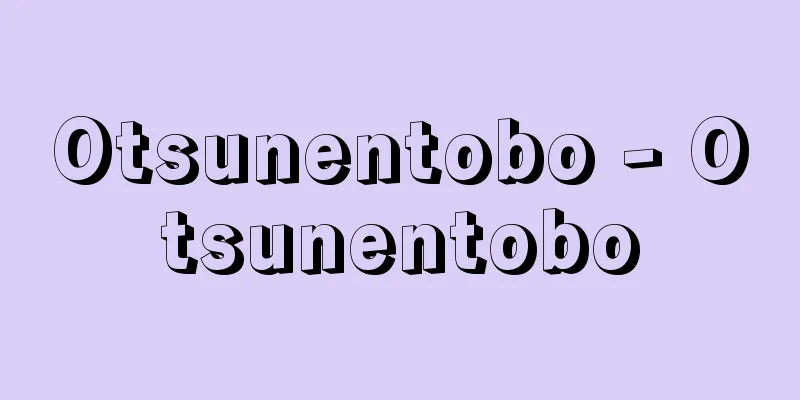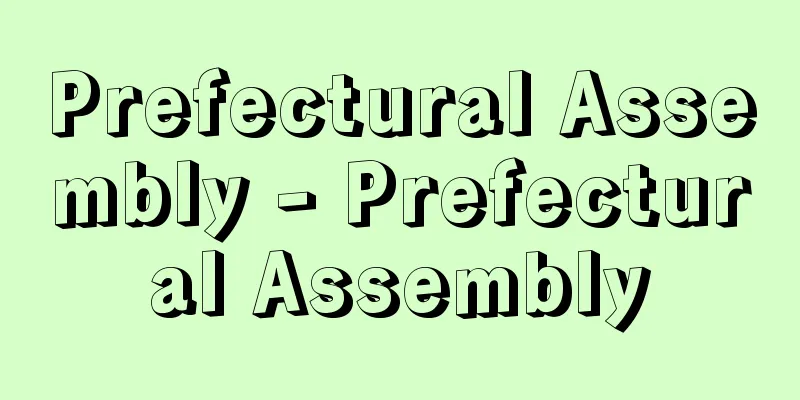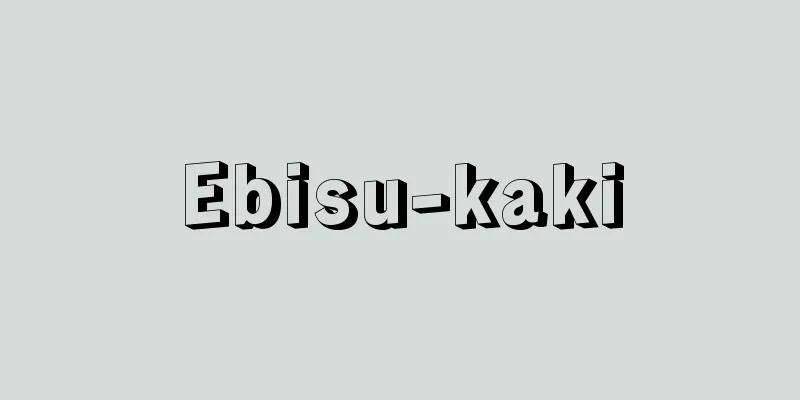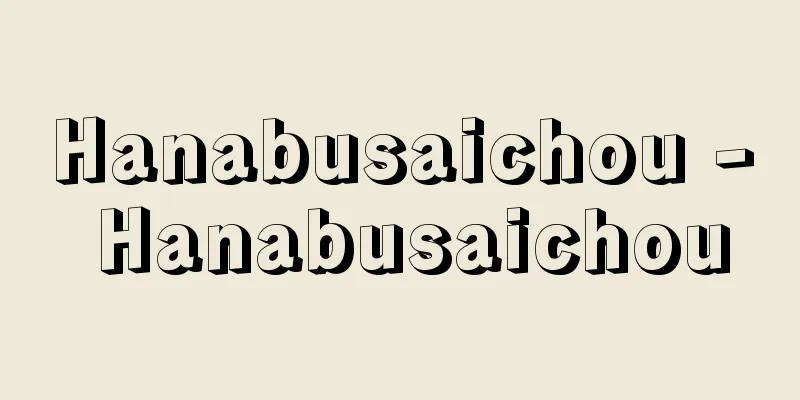Food - Eat

〘Ta-ba-1〙 Ta/Bu 〘Ta-ba-2〙 (A humble form of the yodan conjugation "tabu (gift)". Like the yodan conjugation "tamau (gift)", it originally means "to receive", but is used specifically in cases of receiving food and drink.) 1. A humble form of "nomu" (drink) and "kuu" (eat), also a polite form. (i) Primarily used with a humble feeling. Can be used when receiving food or drink from a superior or a god or Buddha, or simply when humbly and respectfully telling the listener that oneself or someone on one's side is eating or drinking. Itadaku. Tobu. ※Engishiki (927) norito: "Long and flat , I made five grains to eat . " ※Gosen (around 951-953) miscellaneous 3, 1219, inscription: "When Fujiwara no Okinori Ason passed by, I came over to him to have some water." (b) It is mainly used as a polite and refined way of speaking. Especially in modern times, there is almost no sense of honorific language, and it is considered a more polite word than "kuu" (to eat). ※Toraakira Kyogen: Yakusui (late Muromachi period - early modern period) "The waterfall of Yoro is called Yoro Falls, and when I tapped on the water, I found that it was medicinal water."※Tosei Shosei Kishitetsu (1885-86)〈Tsubouchi Shoyo〉chapter 13 "My health gradually worsened, and it was only about a month since I started taking medicine."② A polite way of saying "kuu (food)" which means to earn a living or live.※Ninjyohon: Haruiro Umemi Fune (around 1841-42)chapter 5 "He said he would let me do a small business so that my mother and I could make a living."③ Used in place of "kuu (food)" which means to carelessly believe what others say and be deceived. ※Kabuki Gosetsu Kanjincho (1773), Gotachikiri: "There is a play on words in the greetings, and it's all good on the surface. This Saemon will not be eaten." ④ Used in place of "kuu (food ) " which means to receive something undesirable. ※Tosei Shosei Kajitsu (1885-86), Tsubouchi Shoyo, 15: "You're making fun of me like this so that everyone can hear you. I won't eat your hand." ⑤ Used in place of "kuu (food)" which means to let your guard down. ※Dreams of the Future of Living in the Inland (1886), Tsubouchi Shoyo, 11: "No way, he's not the kind of guy who should be eaten . " [Additional note] The boundary between (i) and (ii) in ① is difficult to distinguish. The Rodrigues' Great Grammar of Japan states about "taburu" that "This verb is used when speaking about oneself or other people of lower status, and is used to show respect and deference to the person one is speaking to (translated by Doi Tadao)," which suggests that it had a strong humble character until around the end of the Muromachi period.Hamu [food]O- su-osu [Food](2) Regarding (②) Among the ancient verbs meaning to eat and drink, “hamu” is focused on expressing the general action of eating and drinking, while “osu” is said to express the meaning of a noble person eating and drinking something as if it were his own. Foodto eat (to eat)Jiki [food]Ke [food]Oshishi [food]Ta-gu [food]Suku [food]Shi [food]Uka [Food]Uke [food]FoodTau-bu [Food]Source: The Selected Edition of the Japanese Language Dictionary About the Selected Edition of the Japanese Language Dictionary Information |
〘他バ下一〙 た・ぶ 〘他バ下二〙 (四段活用の「たぶ(賜)」に対する謙譲語。下二段活用の「たまう(給)」と同じく、本来は「いただく」の意であるが、特に、「飲食物をいただく」場合に限定して用いられる)① 「飲む」「食う」の謙譲語、また、丁寧語。(イ) 主として、謙譲の気持で用いられるもの。上位者または神仏などから、飲食物をいただく場合と、単に、自己または自己側の者が飲食するのを聞き手に対してへりくだり丁重にいう場合とがある。いただく。とうぶ。※延喜式(927)祝詞「長く平らけく、作り食留(たぶル)五(いつくさ)の穀(たなつもの)をも」※後撰(951‐953頃)雑三・一二一九・詞書「大弐藤原興範朝臣のまかりわたるついでに、水たべむとてうちよりてこひ侍りければ」(ロ) 主として、丁寧・上品な言い方の気持で用いられるもの。特に現代では敬語意識はほとんど無く、「食う」に比べれば丁寧な語とされる。※虎明本狂言・薬水(室町末‐近世初)「養老の滝と申て、薬の水いできて、其水をたぶれば」※当世書生気質(1885‐86)〈坪内逍遙〉一三「段々からだがわるくなって、〈略〉薬をたべたのも一月あまり」② 生計を立てる、生活する意の「くう(食)」を丁寧にいう。※人情本・春色梅美婦禰(1841‐42頃)五「母公と私が口養(タベ)て居るほどの小商でもさせて遣らうと言ふンでありますけれども」③ 人の言うことをうかつに信じだまされるの意の「くう(食)」に代えて用いる。※歌舞伎・御摂勧進帳(1773)五立切「挨拶に掛け語があって、表向きの良い事ばかり。この左衛門は喰(タ)べまいわい」④ 好ましくないことを身に受ける意の「くう(食)」に代えて用いる。※当世書生気質(1885‐86)〈坪内逍遙〉一五「聞えよがしにおれの前で、斯くは馬鹿にしていふのであらう。其手はたべぬ」⑤ 気をゆるせるの意の「くう(食)」に代えて用いる。※内地雑居未来之夢(1886)〈坪内逍遙〉一一「どうしてどうして、あいつア喰(タベ)られた奴ぢゃアありませんぜ」[補注]①の(イ)と(ロ)との境目は、明確にしがたい。「ロドリゲス日本大文典」では、「たぶる」について「この動詞は自分自身か他の身分の低い者かに就いて話すのに用ゐられるのであって、話す相手の人を尊敬して敬意を表するものである〈土井忠生訳〉」といっていて、室町末期ごろまでは謙譲語としての性格が強かったことを思わせる。
は・む【食】お・す をす【食】(2)(②について) 上代の飲食する意の動詞のうち、「はむ」が、一般の飲食する動作を表現することに重点を置くものであるのに対し、「おす」は、貴人が対象を自分の物として飲食する意を表わすものとされる。 しょく【食】しょく‐・する【食】じき【食】け【食】おし をし【食】た・ぐ【食】す・く【食】し【食】うか【食】うけ【食】しょく‐・す【食】たう・ぶ【食】出典 精選版 日本国語大辞典精選版 日本国語大辞典について 情報 |
>>: Jogging - jogingu (English spelling)
Recommend
Imbezillität (English spelling)
...They are physically weak, and many die in chil...
Malabo - Malabo (English spelling)
The capital of Equatorial Guinea, in west-central...
Kinsho - Kinsho
…It is widely cultivated throughout the country a...
Oil-containing sludge - Ganyuodei
...Sludge deposits in ports, lakes, rivers, dams,...
Minamoto no Tsunenobu - Minamoto no Tsunenobu
A poet and Chinese poet of the Heian period. He w...
National Humiliation Memorial Day (English)
During the Republic of China era, this day was set...
Eternal Land Peace Order - Eikyurantoheiwarei
…Later, in the late Middle Ages, Landfriede, whic...
Ise ebi (Japanese spiny lobster)
A shrimp of the family Pleistidae in the Crustacea...
Okamoto Noribumi
1847-1931 A mathematician from the Meiji to Taish...
Mount Kirishima - Kirishima-dake
…It is also called Mount Otake, Mount Odake, or M...
Ludwig Bieberbach
1886‐1980 German mathematician. Born in Godderau, ...
Lake Shikaribetsu
A volcanic lake in the northern part of the Tokac...
Chronicles of Yoshitsune
...In addition, the kabuki play "Shikorobiki...
Geomorphology
A natural science that studies the characteristic...
Bird reading sutras - Kyoyomutori
〘Noun〙 = Kyoyomidori (Sutra-reading bird) [Haiku, ...









